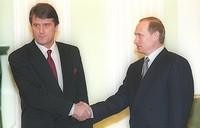The current dispute between Russia and Ukraine over 2009 gas prices marks the fourth time since the Orange Revolution that Moscow and Kiev have tried to sign a contract. Each time, the process has been trumped by a hydra of hidden agendas and political intrigues, with far-reaching implications for consumers. Gazprom prices, scaled to its customers, are pegged to a basket of oil prices with a six-month lag. Embedded in the price for Ukraine, however, are transit fees for downstream exports to Europe. When concessions are made for the transit rate, calculated per 100 km of 1,000 cubic meters of gas, mutual interests align. The overall volume of natural gas, however, is never specified, complicating subsequent talks. In addition, the negotiating parties can rarely say what the price truly contains. It is unclear, for instance, how much of the gas originates in West Siberia and how much in Central Asia. The middleman in this turbid affair is RosUkrEnergo, a Swiss-registered firm with its own tentacles of power.
Russia-Ukraine Price Dispute Driven by Political Hydra

